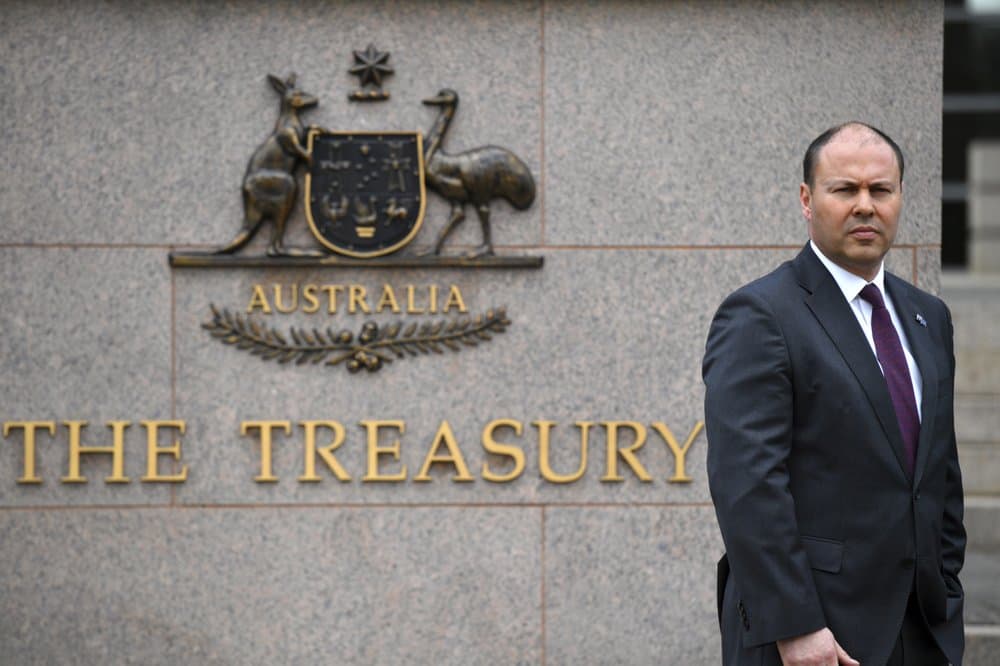Catholic organizations in Australia say the newly announced 2020-2021 national budget is a missed opportunity as the country struggles with the effects of the COVID-19 coronavirus epidemic.
Australian Prime Minister Scott Morrison presented his plan this week, saying it was the nation’s most important budget since World War II.
The budget includes A$26 billion ($18.5 billion) support for businesses and A$4 billion ($2.9 billion) to support youth unemployment. The government is also giving out A$13 billion ($9.3 billion) in tax cuts.
Catholic Social Services Australia says the budget is going to leave behind the country’s most vulnerable.
“With hundreds of thousands of Australians struggling to find work or not able to access enough hours of work, they’ll be left to ponder how they will walk their individual path through the pandemic’s aftermath,” said Ursula Stephens, the organizations chief executive.
“Billions of dollars in tax cuts will help some people, but those cuts won’t help those who can’t find work and who appear destined to return to unsustainably low welfare payments. We’re particularly concerned about workers aged 55 and over – some of whom may never work again,” she said.
Stephens also noted the budget did not give adequate funding for social housing projects and that aid to drought-stricken farmers was in the form of loans and will have to be repaid.
“A years-long drought exacerbated by fires and floods has left many people on their knees, so these loans, along with counselling and other support services, will help people stand up again,” she said.
“In a similar way, 23,000 additional home care packages delivered in aged care helps, but with tens of thousands more older Australians on the waiting list, this is placing a band aid on a gaping wound. The pandemic has shone an even brighter spotlight on the issues facing the aged care sector,” she said.
Pat Garcia, the CEO of Catholic Health Sector said the aged care sector has been underfunded for years, pointing out that staff are underpaid, and many homes are operating at a loss.
“We shouldn’t be in this position and older Australians deserve far better from our political leaders. It’s disappointing that once again the aged care sector has largely been forgotten in today’s budget,” Garcia said.
Garcia also called on the government to announce a strategy for releasing and funding additional home care packages.
“An extra 23,000 packages will make a huge difference to many older Australians, and their families and carers. But we need funding to start flowing to reach everyone on the waiting list,” he said.
Meanwhile, the Jesuit Refugee Service Australia has condemned the government’s decision to slash support to people seeking asylum in the 2020-21 Budget.
Carolina Gottardo, Director of the Jesuit Refugee Service (JRS) Australia (pictured left) said: “This budget does nothing to keep people seeking asylum safe, help them get back on their feet, or support them to re-enter the job market,” said Caroline Gottardo, the Director of JRS Australia.
She noted many of these asylum seekers – including families with children – have waited years for their protection claims to be processed and have worked and paid taxes while waiting.
‘Yet by deliberately excluding these women, children, and men from any financial support whatsoever during a pandemic and a recession, the Federal Government is manufacturing further homelessness, hunger, and ill-health amongst this group of people. In the absence of systemic support, NGOs such as Jesuit Refugee Service (JRS), parishes, schools, and diaspora groups are doing our best to fill the gaps. But we are stretched to breaking point. We cannot continue to do the Federal Government’s job for it endlessly,” Gottardo said.
There were some bright spots in the budgets highlighted by the Catholic groups.
Stephens said additional funding for mental health services, financial counselling and domestic violence support, which have been in great demand during the pandemic, is appreciated.
“The extension of funding for the Equal Remuneration Order to support people working in the social and community services sector in accessing fairer wages is a relief, but it’s still unclear which sectors will benefit,” she said.
“Those fairer wages will help women, who dominate the workforce in those areas, but many of the biggest winners in this budget are industries with almost exclusively male workforces such as construction,” Stephens added.
Catholic Health Australia commended the government for giving patients more options for out-of-hospital care.
The organization said hospital-level care for patients on private plans can now be made available in their homes for services such as renal dialysis, mental health, post-natal services, palliative care, and chemotherapy.
“The key to unlocking the community’s access to out of hospital care is changing the rules around how these services can be paid for by private health insurance,” said James Kemp, CHA’s policy director.
“We need patients to be able to trust that the care they receive at home will be just as good as in-hospital care, and for this we need national quality and clinical governance standards on out of hospital care. These standards need to go hand in hand with the changes to the funding mechanisms,” he added.
“Mental health and orthopedics are a great start, but palliative care is a critical area and the sooner we can implement the reforms that will see private palliative care patients being able to receive the care and support they need in the comfort of their own home, the better,” Kemp said.
Follow Charles Collins on Twitter: @CharlesinRome
















